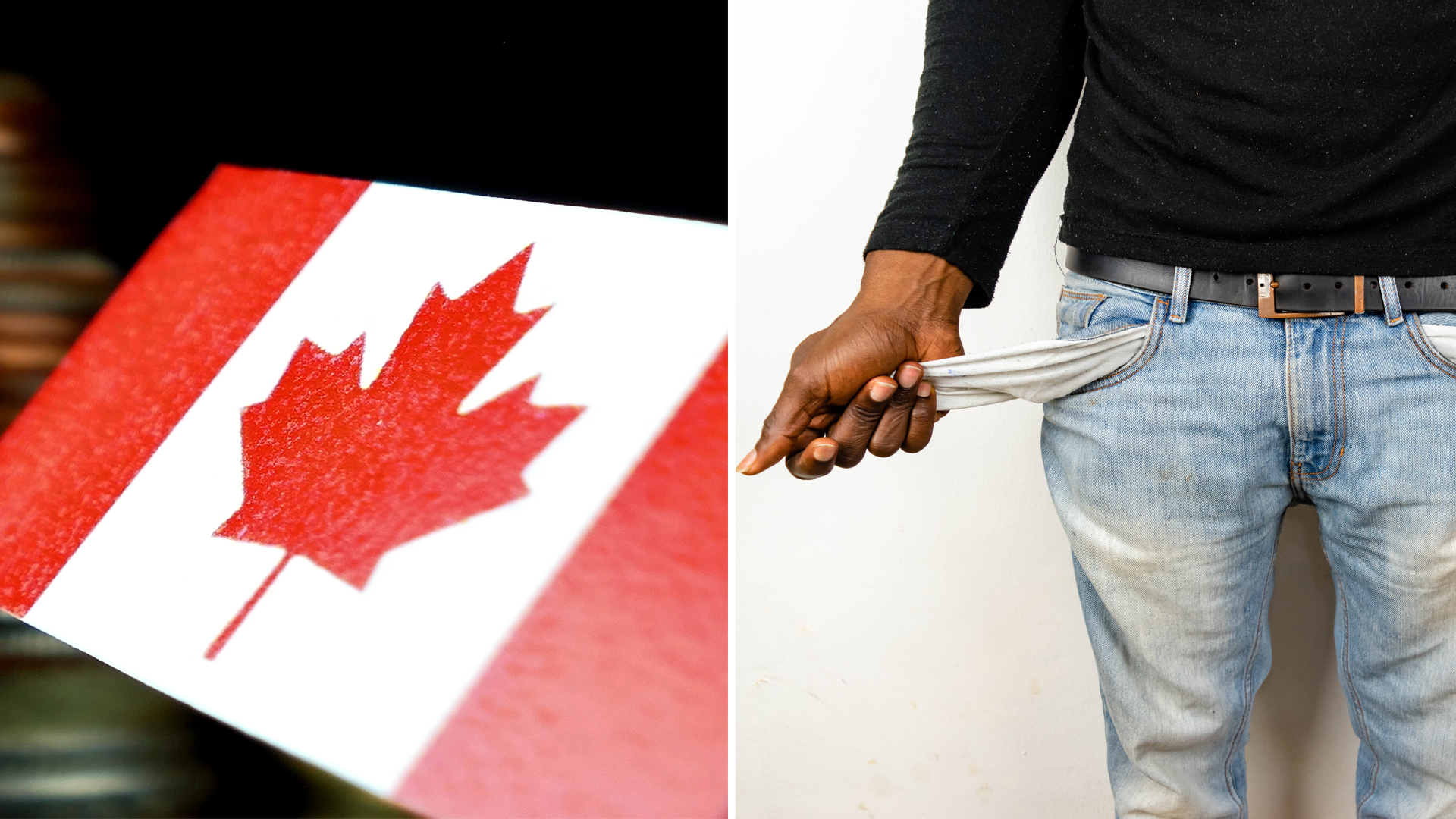Nearly Half of Canadians Are $200 Away From Being Broke

Credit to Author: Anne Gaviola| Date: Tue, 22 Jan 2019 19:39:06 +0000
A couple hundred dollars, or less.
That’s all that stands between many people across Canada, and living paycheque-to-paycheque, according to a new poll, which says 46 percent of respondents are dangerously close to financial insolvency at the end of the month.
That’s a noticeable increase in the number of people who say they’re on the brink—six percent more than last quarter. What’s different is that interest rates have risen, which makes it more expensive to service variable-rate loans and mortgages.
Grant Bazian is the president of bankruptcy firm MNP Ltd, which commissioned the survey. He told VICE 44 percent of respondents between the ages of 18 and 34 say their financial cushion is $200 or less. He says it’s likely because younger respondents haven’t had as much time to work on an emergency fund. “They may not have learned yet the importance of building an emergency fund or ever had the need as money has been cheap for all of their working lives.”
Unlike older respondents, who have lived through economic cycles, millennials and Gen Z are only starting to feel the effect of higher rates. The Bank of Canada has hiked interest rates five times since mid-2017, but for about a decade before that, interest rates were at ultra-low levels and many people piled on cheap debt. It’s worth noting that more than 40 percent of respondents—of all ages—say they regret the amount of debt they’ve taken on.
According to Bridget Casey, who founded the financial literacy service Money After Graduation, timing is everything. “Millennials are caught in the perfect storm or big student loan debts, high housing costs and low wages. This combination makes it extremely difficult to save so they fall behind in a big way, very fast and early on.”
These aren’t the only things highlighted in the poll that are cause for concern. Bazian points to the fact that 45 percent say they need to go deeper into debt to cover their expenses—which means they’ll be borrowing at higher rates, and setting themselves up for more problems down the road.
It will be like being trapped in a vicious cycle, according to Bazian. “With more debt and higher interest rates on the debt, the overall payments increase and it becomes much harder to pay down the principal.” People who are struggling will be saddling themselves with more money owed just to keep getting by.
With so many fighting to not go broke at the end of the month, there’s little wiggle room for the unexpected—and the poll suggests about a third of people can’t handle things you can’t plan for that would impact your finances like losing your job, a break-up, or having to take unpaid time off from work for the death of an immediate family member.
According to Liz Schieck, a financial planner at the New School of Finance, which provides planning and coaching services, being one emergency away from insolvency doesn’t leave you with many options. “When life happens and someone has to use credit to pay for something, they now have a new minimum payment on that debt. That means less available cash each month, and when things are already tight it often means having to use credit again to pay for regular life things like groceries. Then they have an even higher minimum payment, and even less available cash, so they end up using debt again.” It’s like a debt magnet, sucking you in.
Geographically, the largest number of people who are living paycheque-to-paycheque—or just about to—are in Saskatchewan and Manitoba, where more than half say they’re skating on thin ice financially. Forty-eight percent of residents in Alberta say they’re close to financial insolvency, followed by 46 percent across Ontario and Quebec.
For people on the financial brink, Casey says a lifestyle downgrade might be in order. “You might need to get a roommate or sell your car. Be honest with yourself about what you can really afford.” She says a good hard look at your priorities is probably in order too. “It’s more important to have money saved for retirement and emergencies than it is to over-extend yourself to buy a house just so you can call yourself a homeowner. There’s no nice way to say it: it sucks for millennials. It is worse than it was for Boomers and Gen X.”
Schiek says professional help comes in handy, but first you have to be willing to admit you have a problem. “Talk to your friends and family—there’s often such a stigma about struggling financially, but so many people are in the same boat as you!” She says an expert can help you come up with a plan to pay down your debt and rebuild financially. “I don’t think anyone is ‘screwed.’ There is hope, always!”
Follow Anne on Twitter.
Sign up for the VICE Canada Newsletter to get the best of VICE Canada delivered to your inbox.